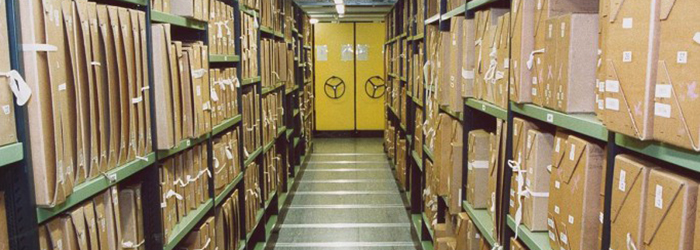North Buckinghamshire
TheGenealogist has just released the North Buckinghamshire maps and field books into its property ownership and occupancy record set, The Lloyd George Domesday Survey. This unique online resource allows researchers to discover where an ancestor lived in the 1910-1915 period from various London districts and now, for the first time, North Buckinghamshire.
These records make use of TheGenealogist’s powerful new Map Explorer™ to access the maps and residential data, giving those who want to discover where their ancestors lived in the period before the First World War some powerful new features to use. The Lloyd George Domesday Survey records are sourced from The National Archives and are being digitised by TheGenealogist so that it is possible to precisely locate where an ancestor lived on large scale, hand annotated maps. These plans include plots for the exact properties and are married to various georeferenced historic map overlays and modern base maps on the Map Explorer™ which allows the researcher to thoroughly investigate the area in which an ancestor lived.
Buckingham, North Buckinghamshire Valuation Office Maps
This release includes the following places: Addington, Akeley, Ashendon and Dorton, Aston Abbotts and Wingrave, Aston Clinton, Aston Sandford, Astwoo, Aylesbury, Barton Hartshorn, Beachampton, Biddlesden, Bierton, Bletchley, Boarstall, Bow Brickhill, Bradwell, Broughton, Buckingham, Calverton, Castlethorpe, Charndon, Chearsley and Long Crendon, Cheddington, Chicheley, Clifton Reynes, Cold Brayfield, Creslow and Whitchurch, Cublington, Cuddington, Dinton, Stone and Hartwell, Drayton Beauchamp, Drayton Parslow and Mursley, Dunton and Hoggeston, East Claydon, Edgcott and Marsh Gibbon, Edlesborough, Emberton, Fenny Stratford, Fleet Marston and Quarrendon, Foscott, Gayhurst, Grandborough, Hogshaw and North Marston, Great and Little Brickhill, Great Horwood, Great Linford, Grendon Underwood, Haddenham, Halton and Wendover, Hanslope, Hardwick and Weedon, Haversham, Hillesden, Ickford, Ivinghoe, Kingsey, Kingswood and Ludgershall, Lillingstone, Linslade and Soulbury, Loughton, Luffield Abbey and Stowe, Marsworth and Pitstone, Mentmore, Milton Keynes, Nash, Newport Pagnell, Newton Longville, Olney, Oving and Pitchcott, Padbury, Quainton, Radclive, Ravenstone, Shalstone, Shenley Brook End, Simpson, Steeple Claydon, Stewkley, Stoke Hammond, Stoke Mandeville, Studley, Swanbourne and Winslow, Thornborough, Tingewick, Turweston, Upper and Lower Winchendon, Waddesdon, Walton, Water Eaton, Wavendon, Weston Turville, Wing, Wolverton, Woolstone and Woughton, Wotton Underwood.
Bletchley Park shown in the Map Explorer™ from TheGenealogist
- TheGenealogist’s Lloyd George Domesday records link individual properties to extremely detailed maps used in 1910-1915
- Fully searchable by name, county, parish and street
- The maps will zoom down to show the individual properties as they were in the 1910s
- The transparency slider reveals a modern street map underlay
- Change the base map displayed to more clearly understand what the area looks like today
Read our article on finding Bletchley Park in these records:
About TheGenealogist
TheGenealogist is an award-winning online family history website, who put a wealth of information at the fingertips of family historians. Their approach is to bring hard to use physical records to life online with easy to use interfaces such as their Tithe and newly released Lloyd George Domesday collections.
TheGenealogist’s innovative SmartSearch technology links records together to help you find your ancestors more easily. TheGenealogist is one of the leading providers of online family history records. Along with the standard Birth, Marriage, Death and Census records, they also have significant collections of Parish and Nonconformist records, PCC Will Records, Irish Records, Military records, Occupations, Newspaper record collections amongst many others.
TheGenealogist uses the latest technology to help you bring your family history to life. Use TheGenealogist to find your ancestors today!
About The National Archives
The National Archives is one of the world’s most valuable resources for research and an independent research organisation in its own right. As the official archive and publisher for the UK government, and England and Wales they are the guardians of some of the UK's most iconic national documents, dating back over 1,000 years. Their role is to collect and secure the future of the government record, both digital and physical, to preserve it for generations to come, and to make it as accessible and available as possible. The National Archives brings together the skills and specialisms needed to conserve some of the oldest historic documents as well as leading digital archive practices to manage and preserve government information past, present and future.
http://www.nationalarchives.gov.uk/ http://www.legislation.gov.uk/
For the latest stories, follow the Media Team on Twitter @TNAmediaofficer

 As a government department providing a public service, TNA are able to charge for some statutory services (as defined by the Public Records Act ) on a cost recovery basis. The Fees Order, which regulates our fees, has been refreshed from the last calculation which came into effect 1 April 2017. The National Archives are maintaining the standard approach in line with the HM Treasury publication, Managing Public Money, to set charges at a level that will recover full costs, ensuring that The National Archives neither profits at the expense of consumers nor makes a loss for taxpayers to subsidise.
As a government department providing a public service, TNA are able to charge for some statutory services (as defined by the Public Records Act ) on a cost recovery basis. The Fees Order, which regulates our fees, has been refreshed from the last calculation which came into effect 1 April 2017. The National Archives are maintaining the standard approach in line with the HM Treasury publication, Managing Public Money, to set charges at a level that will recover full costs, ensuring that The National Archives neither profits at the expense of consumers nor makes a loss for taxpayers to subsidise.